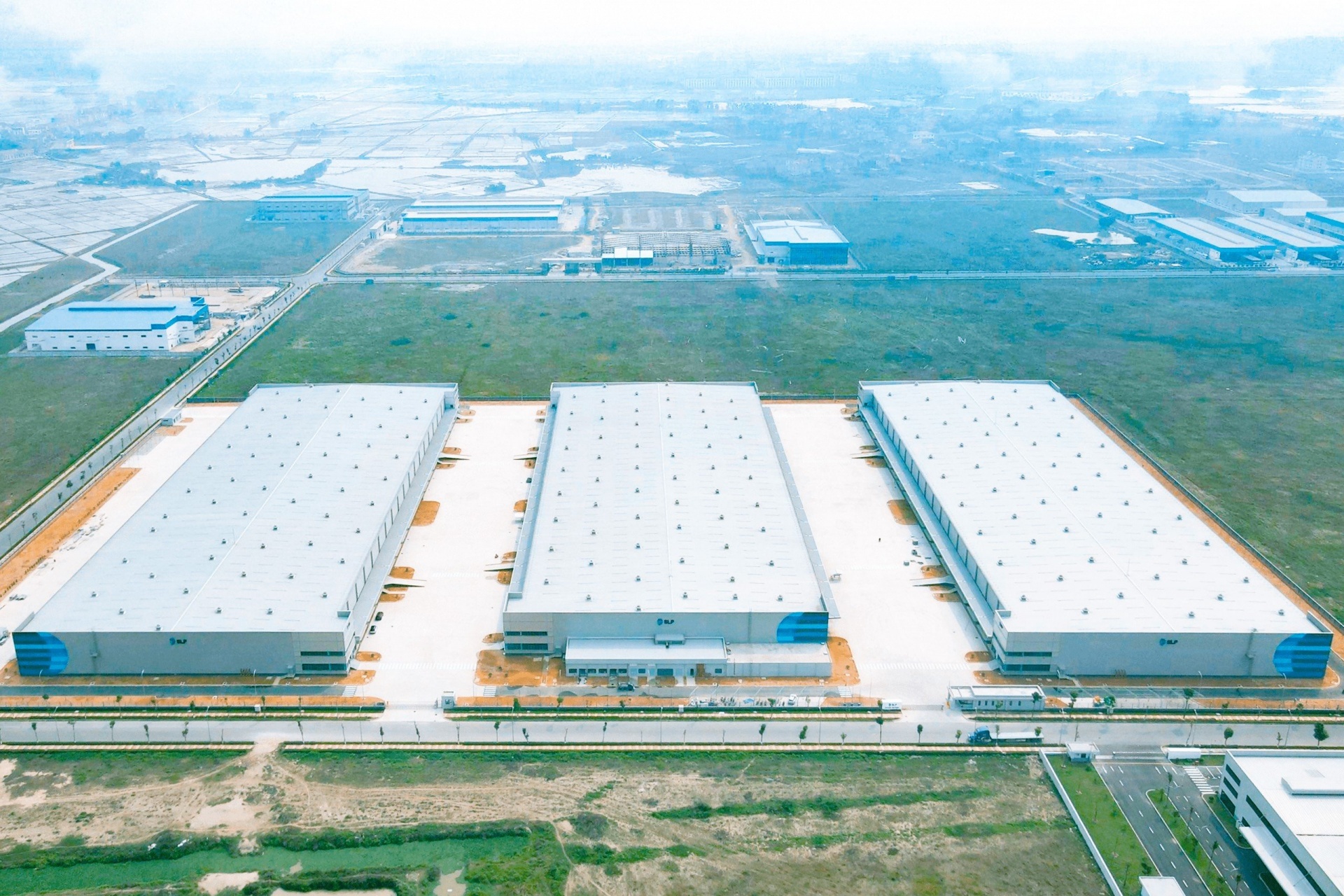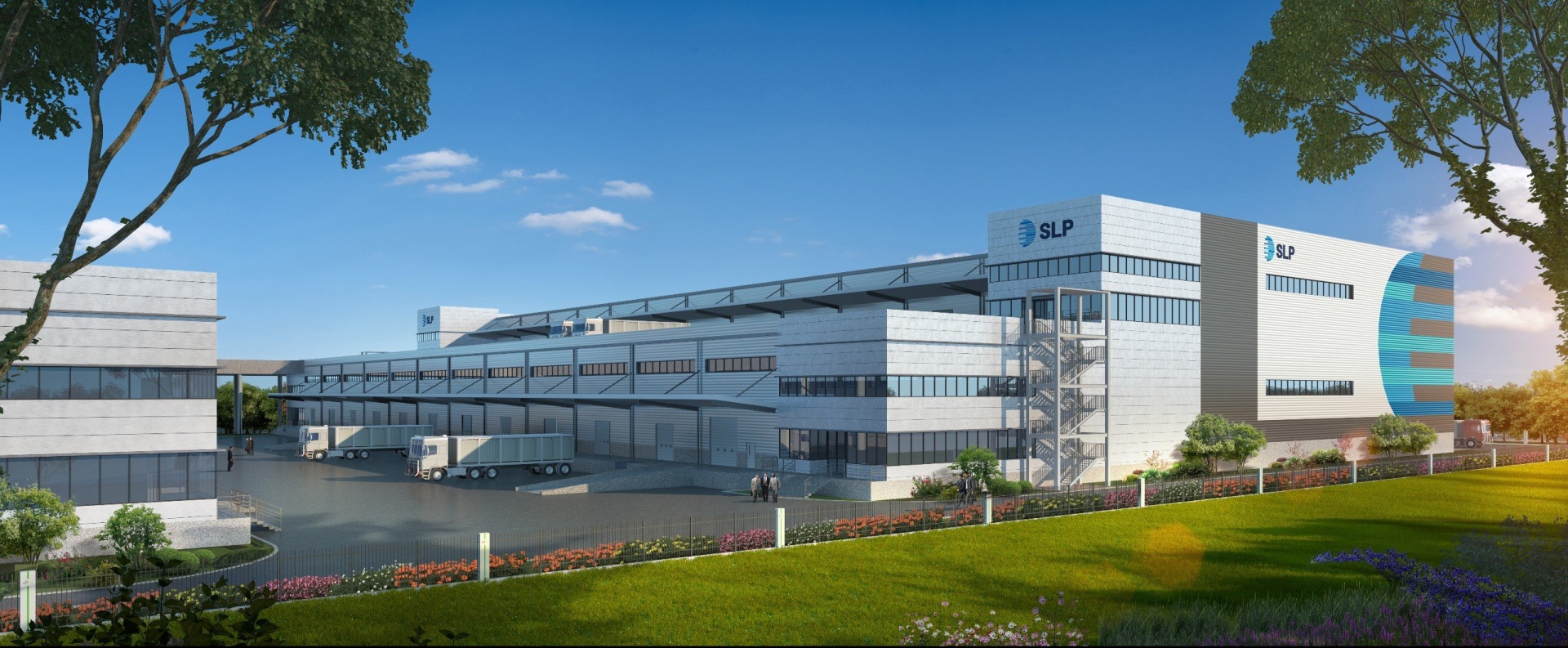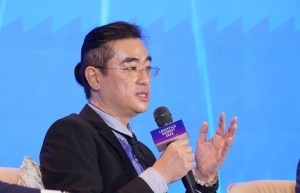SLP delves into unlocking the potential of Vietnam's logistics industry
 |
Could you share why SLP chose to invest in the Vietnamese market?
SLP is a Vietnam-based platform focusing on Southeast Asia, and is part of GLP, a global investment manager and business builder for the logistics, data infrastructure, and renewable energy industries.
SLP serves as the platform for developing and operating GLP's modern industrial and logistics infrastructure in Vietnam. We have identified compelling reasons for investing in the Vietnamese market by drawing on GLP's extensive experience owning and operating assets and businesses across 17 countries in Asia, Europe, and the Americas.
First and foremost, Vietnam's stable security and political environment have been crucial factors in our decision to lay the foundation for long-term investment activities. Additionally, its favourable geographical location positions it as a vital trade hub, serving both as a regional connection centre and a gateway to economies in the western part of the Indochina Peninsula. Moreover, Vietnam boasts an abundant, high-quality workforce with highly competitive labour costs.
Furthermore, Vietnam's participation in various free trade agreements, coupled with well-established institutions and laws, instils confidence in long-term investments and facilitates seamless integration into global supply chains and value networks.
Vietnam benefits significantly from the China +1 policy. The trend of relocating factories from China to Southeast Asia, particularly Vietnam, has rendered the investment environment even more appealing, creating conducive conditions for developing the logistics sector.
However, Vietnam's logistics industry faces challenges such as high costs, fragmentation among service providers, and a prevalence of small- and medium-sized businesses. This presents substantial opportunities for investment, innovation, development, and collaboration with foreign firms.
The explosive growth of e-commerce is a further testament to Vietnam's potential as a goods transshipment centre and a critical link in the global supply chain.
 |
What are SLP's advantages in the Vietnamese market?
It is important to clarify that SLP does not simply view itself as a conventional logistics developer and leasing entity. Instead, we have positioned our brand as a comprehensive solutions provider and a valuable resource aggregator. Drawing upon over two decades of experience in development and operations, GLP has evolved from being a logistics real estate owner into a fully integrated ecosystem.
This encompasses various services, including advanced logistics technology, investment, fund, and asset management, equipment leasing, renewable energy solutions, and data centres. Such diversification empowers us to offer end-to-end solutions to our customers, effectively addressing their operational and logistics requirements and ultimately enabling them to drive their businesses forward more efficiently.
Through our extensive network of customers, we gain valuable insights into their specific requirements, allowing us to tailor our services better to meet those needs. We consider these capabilities to be distinct advantages of SLP.
With this vision and approach, GLP-SLP will stand as a reliable and preferred partner for businesses operating in Vietnam.
What are the key environmental, social, and governance (ESG) signatures and sustainability practices that SLP has incorporated into its building design and operations?
Within our ESG framework, we have implemented several key sustainability initiatives. We strongly emphasise energy-efficient building design and technologies. This includes integrating high-efficiency features such as LED lighting and variable frequency drives for pumps, as well as making our facilities ready for solar panel installation. Additionally, we ensure our building systems are commissioned with wall and roof insulation for enhanced energy performance.
Water-saving features are also a priority for us. We implement innovative systems like drip irrigation, use drought-tolerant and native landscaping, and incorporate high-efficiency fixtures such as low-flow taps and toilets.
In addition, we develop comprehensive waste management plans during the construction and operational phases. This includes ongoing waste performance monitoring, recycling schemes, and waste steam audits to minimise the environmental impact.
Another key is selecting the optimal locations for smart warehouses. We aim to keep transportation to a minimum, reducing emissions and our carbon footprint.
 |
For material selection, we encourage the use of sustainable and eco-friendly construction materials with a low carbon footprint. This extends to sustainable insulation, roofing, and flooring options, contributing to more environmentally friendly buildings.
We pursue green building certifications, such as LEED, for our facilities. In 2023, SLP Park Yen Phong and SLP Hai Phong both achieved LEED certification. These certifications not only reflect our commitment to environmental impact reduction but also lead to lower operational costs. Features like optimised lighting and air quality, green spaces, relaxation areas, cleanliness, functionality, and thermal comfort enhance the experience for all users.
Moreover, we are committed to renewable energy. Our rooftops are ready for solar panel installation, and at the firm level, GLP aims to achieve 1GW of renewable energy capacity by 2023.
In terms of adaptability, our warehouse designs prioritise flexibility to meet changing needs and technologies, ensuring long-term sustainability.
Lastly, we stay vigilant and keep up-to-date with local and national regulations related to sustainable construction, ensuring strict compliance throughout the development process.
What are your recommendations for logistics infrastructure planning and development in Vietnam?
While considerable progress has been made in planning and developing logistics infrastructure in Vietnam, certain pressing concerns and deficiencies still warrant resolution. To ascend to the status of a regional logistics hub, Vietnam must keep pushing forward.
Transport infrastructure plays a pivotal role in the supply chain, encompassing roads, railways, seaports, and airports, and it requires enhanced connectivity to streamline the movement of goods and services. This, in turn, will reduce logistics costs and cater to the burgeoning demands of the industry.
Investments to develop contemporary logistics infrastructure are imperative. This includes the construction of warehouses, factories, and distribution centres that adhere to modern standards and are strategically positioned near pivotal industrial clusters and major transportation hubs. Upgrading the existing infrastructure and integrating cutting-edge technologies will augment efficiency and alleviate congestion.
In addition, embracing technologies such as AI, blockchain, the Internet of Things, and online solutions is paramount. The development and integration of these technologies unlock opportunities for innovation across the logistics spectrum, from warehouse management to tracking and supply chain optimisation. However, it is crucial to acknowledge that technology investment costs can pose significant challenges, particularly for small- and medium-sized enterprises.
It is also crucial to develop more specialised logistics zones, centralised storage, and transshipment facilities to optimise operations.
Streamlining and optimising the regulations and procedures associated with logistics activities is essential. Deploying advanced technologies, such as electronic data exchange systems and single-window platforms, can simplify and automate customs processes. This will reduce delays and administrative burdens while enhancing performance and bolstering competitiveness.
Human resource training and development is another key focus area. Currently, the shortage of skilled personnel and the challenges related to training are significant obstacles. Businesses must invest in training and attract talent with the knowledge and skills to foster innovation and elevate the industry.
 | Discussing the latest insights into Vietnam's logistics market Vietnam's logistics industry is seeing significant growth due to the country's expanding manufacturing and e-commerce sectors. Edwin Chee, COO of SEA Logistics Partners (SLP) Vietnam, shared with Thanh Van his insights into the domestic logistics market and the company's plan to tap into this growth. |
 | Vietnam can glean insights from Malaysia's logistics journey: conference Experts shared their nations' experiences and the importance of a thoughtful approach to automation in the ever-evolving logistics sector, during a conference on logistics on October 5. |
 | Experts mull modern logistics trends Businesses shared their initiatives to keep abreast of the latest logistics trends at the second panel "Unlocking the Opportunities for Future Logistics," within the framework of the Logistics Summit 2023, jointly organised by VIR and SLP Vietnam. |
What the stars mean:
★ Poor ★ ★ Promising ★★★ Good ★★★★ Very good ★★★★★ Exceptional
Related Contents
Latest News
More News
- Gia Lai draws over $1bn in new investment so far this year (January 19, 2026 | 11:50)
- Unlocking capital flows for strategic and suitable projects (January 18, 2026 | 09:00)
- ACV begins cargo terminal construction at Danang Airport (January 17, 2026 | 15:57)
- Viettel starts construction of semiconductor chip production plant (January 16, 2026 | 21:30)
- Bel expands Vietnam production with $19.7 million investment (January 16, 2026 | 16:07)
- ASML signals long-term commitment to Vietnam (January 16, 2026 | 12:00)
- Ho Chi Minh City starts construction of four key infrastructure projects (January 15, 2026 | 17:22)
- PIDG invests with AquaOne to expand Xuan Mai’s treated water supply to Hanoi (January 15, 2026 | 11:16)
- Vietnam ranks 38th in global AI adoption (January 14, 2026 | 16:01)
- European business confidence reaches highest in seven years (January 13, 2026 | 10:17)

 Tag:
Tag:




















 Mobile Version
Mobile Version